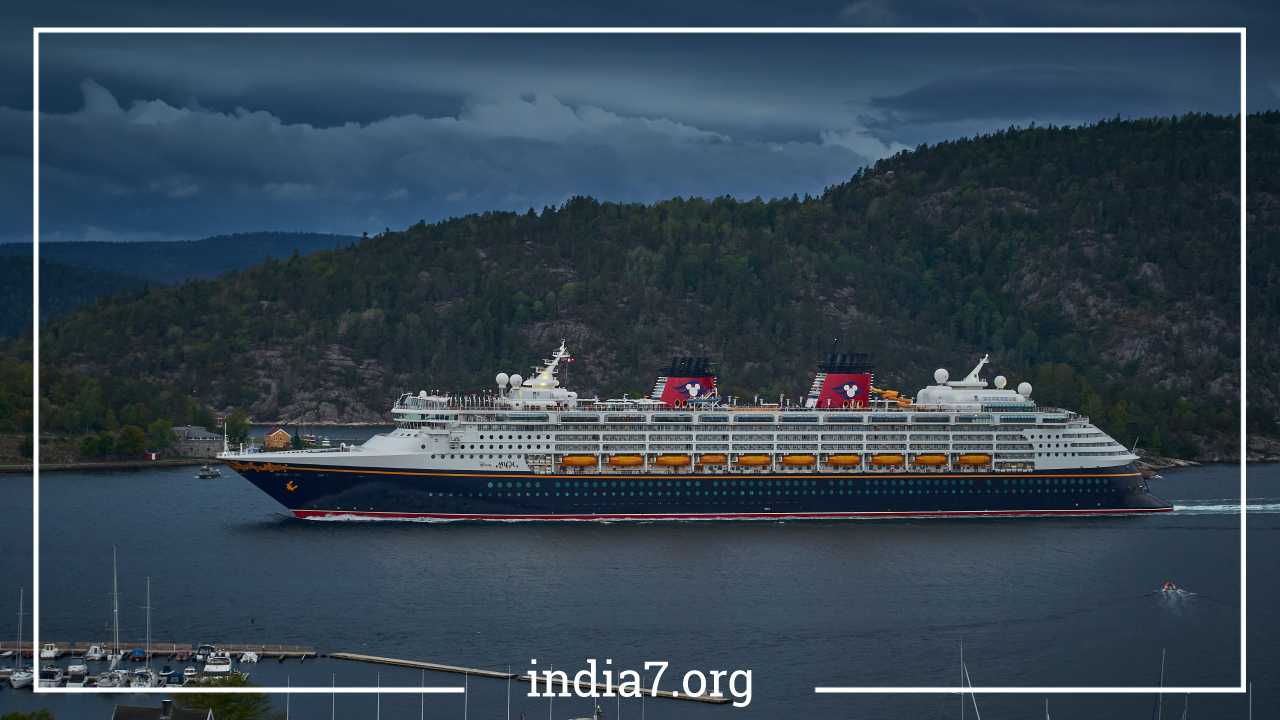Mastering the Art of Budgeting for Your Cruise Ship Vacation

Cruise Ship Vacation
Planning a vacation is an exciting endeavor, but it often comes with the important consideration of cost. Regardless of your socioeconomic status—whether you identify as middle class, lower class, or upper class—the expense of your vacation plays a crucial role in your decision-making process. When opting for a cruise ship vacation, there are numerous factors and variables to take into account when estimating the total cost of your trip. In this comprehensive guide, we will delve into these aspects in detail, providing you with the information you need to plan and budget for a memorable cruise vacation.
Choosing the Right Cruise Line and Ship
The first step in estimating the cost of your cruise ship vacation is selecting a specific cruise line and ship. Your choice of cruise ship will significantly impact your vacation costs. Some cruise ships offer all-inclusive vacation packages, which may initially appear costly but often eliminate the need for carrying excessive amounts of money during your trip.
All-inclusive cruise packages typically cover a wide range of expenses, including accommodations, meals, drinks, and entertainment. These packages are ideal for travelers who prefer a more predictable and hassle-free vacation experience. However, they might not be available for all cruise lines or routes, and they can vary in terms of what is included, so it’s crucial to thoroughly research your options.
For those who prefer more flexibility in their vacation spending or for whom all-inclusive packages are not available, it becomes essential to break down the various components of your cruise vacation expenses.
Departure and Destination
The departure port and destination of your cruise also play a significant role in estimating costs. If the departure port is not conveniently located near your home, you must factor in the cost of reaching the port into your overall cruise expenses. This cost can vary widely depending on your mode of transportation, whether it’s by plane, train, bus, or even by driving your own vehicle.
Additionally, the choice of destination can impact your budget. Some cruise destinations are more expensive than others due to factors such as distance, local cost of living, and popularity. It’s important to research the specific ports of call on your cruise itinerary and understand the potential expenses associated with each destination.
Mode of Travel to the Departure Port
When estimating the cost of reaching your cruise’s departure port, it’s essential to consider your mode of travel. Each mode of transportation comes with its own set of expenses and considerations.
- Air Travel: Air travel is often the most convenient but can also be the most expensive option. When booking flights, look for deals and discounts, and consider the cost of transportation to and from the airport.
- Bus Travel: Taking a bus to the departure port can be a more economical choice. Research bus ticket prices, schedules, and any additional fees, such as baggage fees.
- Train Travel: Train travel offers a scenic and comfortable option for reaching your cruise. Compare train ticket prices and check for discounts or rail passes if applicable.
- Driving: If you choose to drive to the departure port, calculate the cost of fuel, tolls, parking, and any overnight accommodations if the port is a considerable distance from your home.
It’s important to weigh the advantages and disadvantages of each travel mode based on your budget, time constraints, and personal preferences. Sometimes, a combination of transportation methods may be the most cost-effective solution.
Onboard Costs
Once you’ve reached your cruise ship, you’ll need to consider the expenses you’ll incur while onboard. This is where budgeting becomes especially important, as onboard expenses can quickly add up.
All-Inclusive Packages: If you have opted for an all-inclusive cruise package, many of your onboard costs may already be covered. These packages often include meals, drinks (both alcoholic and non-alcoholic), and a wide range of entertainment options. They are designed to provide a hassle-free vacation experience with minimal additional expenses.
However, it’s crucial to carefully review the terms of your all-inclusive package to understand what is and isn’t included. Some cruise lines may charge extra for premium dining options, specialty beverages, or exclusive onboard activities.
Non-Inclusive Packages: If you haven’t chosen an all-inclusive package, you’ll need to estimate the amount of money you’ll spend onboard. This estimation is not only important for budgeting but also to ensure you have enough spending money for a comfortable and enjoyable cruise.
Here are some key aspects to consider when estimating onboard expenses:
1. Meals: Determine how many meals you’ll eat onboard each day. While basic dining options are typically included, specialty restaurants may charge extra fees. Additionally, budget for tips if they are not included in your cruise fare.
2. Drinks: Cruise ships offer a variety of beverages, including alcoholic and non-alcoholic options. Alcoholic drinks are usually not included in standard packages, so account for these expenses if you plan to enjoy cocktails or wine during your trip.
3. Entertainment: Most cruise lines have websites that offer detailed information on all of their ships, including the cost of using particular entertainment facilities. Some onboard activities, such as movies, performances, and dance lessons, may come with additional fees. Research these costs in advance to budget accordingly.
4. Excursions: Cruise itineraries often include opportunities to participate in shore excursions at the various ports of call. These excursions can range from guided tours to adventure activities, and they typically come at an extra cost. Research the excursions available on your cruise and budget for the ones that interest you.
5. Spa and Wellness: Many cruise ships have onboard spas, fitness centers, and wellness programs. These services are usually not included in standard packages, so consider whether you want to indulge in spa treatments or fitness classes during your cruise.
6. Casino and Gambling: Cruise ship casinos offer a range of games, from slot machines to table games like blackjack and poker. If you plan to try your luck, set aside a gambling budget. Keep in mind that gambling expenses can vary widely depending on your level of participation.
7. Shopping: Cruise ships often have onboard boutiques and shops where you can purchase clothing, jewelry, souvenirs, and duty-free goods. Budget for any shopping you plan to do during your cruise.
8. Gratuities and Service Charges: Some cruise lines automatically add gratuities or service charges to your onboard account. These charges typically cover tips for dining and cabin staff. Review your cruise line’s gratuity policy to understand whether these charges are included or if you need to budget for additional tips.
Estimating Food and Beverage Costs
Estimating the cost of food and drinks on a cruise can be challenging for several reasons:
1. Limited Menu Access: Cruise ship menus are often not readily available online, making it difficult to calculate food and beverage costs accurately in advance.
2. Dining Options: Cruise ships offer a variety of dining options, ranging from casual buffets to upscale specialty restaurants. The cost of meals can vary significantly depending on where and how you choose to dine.
3. Dietary Preferences: Your dietary preferences and restrictions can also impact your food expenses. For example, if you have dietary restrictions that require special meal preparations, there may be additional charges.
Given these challenges, it’s advisable to overestimate the cost of food and drinks in your budget. Start by considering your typical dining habits and preferences. If you enjoy fine dining experiences or plan to dine at specialty restaurants, allocate a higher budget for dining expenses. On the other hand, if you are content with the standard dining options provided, you can budget accordingly.
Onboard Entertainment Expenses
Estimating the cost of onboard entertainment is often more straightforward than estimating food and beverage costs. Most cruise lines provide detailed information about their ships, including the cost of using specific entertainment facilities.
Common onboard entertainment options and their associated costs may include:
1. Movie Screenings: Some cruise ships charge passengers to watch movies in onboard theaters. Check whether movie screenings come with an additional fee.
2. Live Performances: Enjoying live performances, such as theater productions, comedy shows, and musical acts, may come with a ticket price. Review the cruise ship’s entertainment schedule and ticket prices for any shows you plan to attend.
3. Onboard Activities: Many cruise ships offer a wide range of onboard activities, such as rock climbing walls, onboard surfing, dance lessons, and swimming lessons. These activities can be a fun way to spend your time but may have associated fees. Research the costs of these activities and include them in your budget.
4. Spa and Wellness: Spa treatments, fitness classes, and wellness activities are common onboard offerings. These services typically require an additional fee, so plan your spa and wellness experiences accordingly.
5. Children’s Programs: If you are traveling with children, some cruise lines offer supervised children’s programs and activities. Check if there are any fees associated with these programs and include them in your budget if necessary.
6. Art Auctions and Galleries: Some cruise ships host art auctions and feature onboard art galleries. If you have an interest in art, be prepared for potential art-related expenses.
7. Educational Workshops: Cruise ships often offer educational workshops and lectures on a variety of topics. While these may be included in your cruise fare, some specialized workshops may have fees.
Gambling Expenses
If you are interested in gambling during your cruise ship vacation, it’s important to factor this into your budget. Cruise ship casinos offer various gaming options, and you can choose to gamble with different amounts of money. Estimating the cost of gambling can be challenging, so it’s advisable to err on the side of caution by aiming your estimate high.
To budget for gambling expenses:
- Set a Gambling Budget: Determine the maximum amount of money you are willing to spend on gambling during your cruise. This should be an amount you are comfortable losing without affecting your overall vacation enjoyment.
- Stick to Your Budget: Once you’ve set your gambling budget, discipline yourself to stick to it. Avoid chasing losses, and know when to walk away if you reach your budgeted limit.
- Learn the Games: If you are not familiar with casino games, consider learning the rules and strategies beforehand. This can help you make more informed bets and potentially extend your gambling budget.
- Use Player’s Club Programs: Many cruise ship casinos offer player’s club programs that provide perks and rewards based on your gambling activity. These programs can offer benefits like complimentary drinks, discounts, or even free play. Sign up for the player’s club to take advantage of these perks.
Remember that gambling should be seen as entertainment, and the outcome is not guaranteed. It’s essential to gamble responsibly and within your means to avoid any financial strain during your vacation.
Souvenirs and Excursions
In addition to the onboard expenses mentioned above, it’s crucial to consider the cost of obtaining items or souvenirs at the ports your cruise ship plans to dock at. Whether you’re interested in purchasing local crafts, clothing, or memorabilia, these expenses can add up. Additionally, if you plan to participate in shore excursions or activities at the various ports of call, you’ll need to budget for these experiences.
Here are some tips for budgeting for souvenirs and excursions:
- Research Port of Call Options: Research the ports of call on your cruise itinerary to understand the types of souvenirs available and the range of prices. This will help you set a reasonable budget for shopping.
- Excursion Costs: Review the shore excursions offered by your cruise line and their associated costs. Excursions can vary widely in price, so prioritize the ones that align with your interests and budget.
- Currency Exchange: If your cruise includes ports in different countries, be aware of currency exchange rates and consider exchanging currency in advance to avoid unfavorable rates onboard or at the ports.
- Budget Flexibility: Keep in mind that souvenirs and excursions can be a significant part of your cruise experience. While it’s essential to budget carefully, allow for some flexibility to enjoy these aspects of your vacation.
Overall Vacation Budget Considerations
While we’ve covered the major components of estimating the cost of a cruise ship vacation, it’s essential to consider the overall budget for your trip. Your vacation budget should encompass all potential expenses, both planned and unexpected. Here are some additional factors to keep in mind:
- Travel Insurance: Consider purchasing travel insurance to protect your investment in case of unexpected cancellations, delays, or emergencies during your trip. The cost of travel insurance can vary based on coverage levels and your age, so factor this into your budget.
- Miscellaneous Expenses: Account for any miscellaneous expenses you may incur during your cruise, such as laundry services, internet access, tips for porters at the departure port, and any unplanned activities.
- Emergency Fund: It’s always wise to have an emergency fund or backup savings in case unexpected expenses arise during your vacation. Having some extra funds available can provide peace of mind.
- Currency Conversion: If your cruise includes international destinations, be aware of potential currency conversion fees when using your credit card or withdrawing cash at foreign ATMs. Check with your bank or credit card issuer for details on fees and exchange rates.
- Credit Card and Payment Options: Before your trip, inform your credit card company of your travel plans to avoid potential payment issues while onboard or at ports of call. Additionally, consider carrying a small amount of cash in the local currency of your cruise destinations for small purchases and tips.
Estimating Total Vacation Cost
To estimate the total cost of your cruise ship vacation, follow these steps:
- Create a Detailed Budget: List all potential expenses, including transportation to the departure port, cruise fare, onboard expenses (meals, drinks, entertainment, gambling, spa services), souvenirs, excursions, travel insurance, and any miscellaneous costs.
- Research Costs: Gather information on the specific costs associated with your chosen cruise line, ship, and itinerary. Consult the cruise line’s website and reach out to their customer service if needed.
- Set a Contingency Budget: In addition to your planned expenses, set aside a contingency budget for unexpected costs or emergencies.
- Calculate Total Estimated Costs: Sum up all your budgeted expenses to arrive at your total estimated vacation cost.
- Review and Adjust: Once you have your estimated total, review your budget to ensure it aligns with your financial capabilities. If necessary, adjust your plans or budget to make your vacation more financially manageable.
- Book and Confirm: After finalizing your budget, proceed to book your cruise and any necessary accommodations, excursions, or travel insurance. Double-check all reservations to ensure accuracy.
- Monitor Expenses: During your cruise, keep track of your expenses to stay within your budget. Cruise ships often provide onboard account summaries to help you monitor your spending.
Conclusion
Estimating the cost of a cruise ship vacation involves careful planning and consideration of various factors, from transportation and onboard expenses to souvenirs and excursions. By thoroughly researching your options, setting a detailed budget, and accounting for potential contingencies, you can embark on your cruise vacation with confidence, knowing that you are financially prepared to enjoy a memorable and worry-free experience at sea. Whether you are looking to relax on the deck, explore exotic ports of call, or try your luck in the casino, a well-planned budget will ensure that your cruise adventure is as enjoyable as it is cost-effective. Bon voyage!



